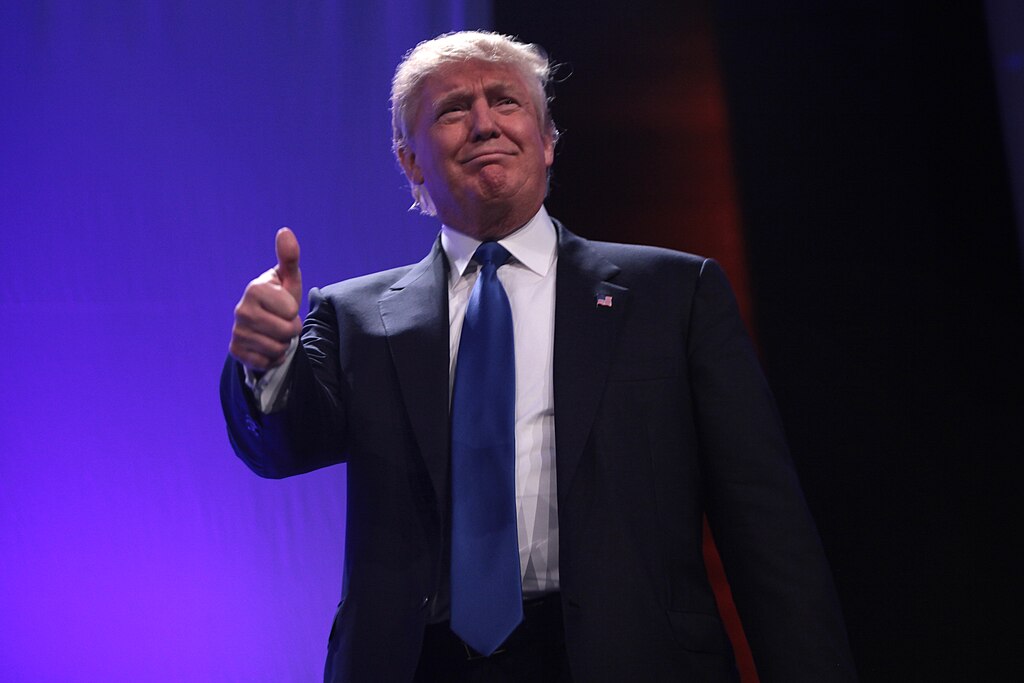In a recent interview with Time magazine, President-elect Donald Trump announced a stringent immigration policy: the United States will cease business relations with countries that refuse to repatriate their citizens who have been ordered to leave the U.S.
This policy includes imposing substantial tariffs on imports from non-compliant nations.
Economic Sanctions as Leverage
Trump emphasized that countries unwilling to accept deported migrants would face significant economic consequences. He stated, "If they don’t take them back, we won’t do business with those countries, and we will tariff those countries very substantially."
This approach aims to compel cooperation through economic pressure.
Utilizing Military Resources for Deportations
The President-elect plans to employ military resources to assist in deporting undocumented migrants, describing the situation as an "invasion."
While legal constraints exist under the Posse Comitatus Act, Trump intends to use the National Guard and other resources to the fullest extent permitted by law.
Historical Context and Precedents
The issue of countries refusing to accept deported citizens is longstanding. In 2016, reports indicated that at least 23 countries were uncooperative in repatriating their nationals, including individuals convicted of crimes.
Previous administrations have faced challenges in addressing this problem, often resulting in the release of such individuals back into U.S. communities.
International Responses and Challenges
The Bahamas has already rejected a proposal from the Trump transition team to accept deported migrants from other countries, citing limited resources.
Similarly, Mexico is seeking agreements to ensure it does not receive third-country deportees, highlighting the complexities of international cooperation in immigration enforcement.
Public Reaction
The announcement has sparked diverse reactions on social media:
-
@PolicyWonk: "Trump's hardline stance on deportations is a bold move to enforce immigration laws."
-
@HumanRightsAdvocate: "Using economic sanctions to force countries to accept deportees raises ethical concerns."
-
@EconAnalyst: "Imposing tariffs could have unintended economic consequences for the U.S. economy."
-
@ImmigrationLawyer: "Legal challenges are likely if military resources are used for deportations."
-
@GlobalObserver: "International relations may be strained by this aggressive immigration policy."
-
@BorderSecurityNow: "It's about time we take strong action to secure our borders and enforce laws."
These reactions reflect the contentious nature of the proposed policies and the balance between national security and humanitarian considerations.



 Samsung and SK Hynix Shares Hit Record Highs as Nvidia Earnings Boost AI Chip Demand
Samsung and SK Hynix Shares Hit Record Highs as Nvidia Earnings Boost AI Chip Demand  Australia Targets AI Platforms With Strict Age Verification Rules
Australia Targets AI Platforms With Strict Age Verification Rules  Flare, Xaman Roll Out One-Click DeFi Vault for XRP Yield via XRPL Wallets
Flare, Xaman Roll Out One-Click DeFi Vault for XRP Yield via XRPL Wallets  APEX Tech Acquisition Inc. Raises $111.97 Million in NYSE IPO Under Ticker TRADU
APEX Tech Acquisition Inc. Raises $111.97 Million in NYSE IPO Under Ticker TRADU  EU Urges Maximum Restraint in Iran Conflict Amid Fears of Regional Escalation and Oil Supply Disruption
EU Urges Maximum Restraint in Iran Conflict Amid Fears of Regional Escalation and Oil Supply Disruption  U.S. Lawmakers Question Trump’s Iran Strategy After Joint U.S.-Israeli Strikes
U.S. Lawmakers Question Trump’s Iran Strategy After Joint U.S.-Israeli Strikes  Trump Says U.S. Combat Operations in Iran Will Continue Until Objectives Are Met
Trump Says U.S. Combat Operations in Iran Will Continue Until Objectives Are Met  FCC Approves Charter Communications’ $34.5 Billion Acquisition of Cox Communications
FCC Approves Charter Communications’ $34.5 Billion Acquisition of Cox Communications  Israel Declares State of Emergency as Iran Launches Missile Attacks
Israel Declares State of Emergency as Iran Launches Missile Attacks  HHS Adds New Members to Vaccine Advisory Panel Amid Legal and Market Uncertainty
HHS Adds New Members to Vaccine Advisory Panel Amid Legal and Market Uncertainty  FAA Plans Flight Reductions at Chicago O’Hare as Airlines Ramp Up Summer Schedules
FAA Plans Flight Reductions at Chicago O’Hare as Airlines Ramp Up Summer Schedules  Coupang Reports Q4 Loss After Data Breach, Revenue Misses Estimates
Coupang Reports Q4 Loss After Data Breach, Revenue Misses Estimates  Russia Signals Openness to U.S. Security Guarantees for Ukraine at Geneva Peace Talks
Russia Signals Openness to U.S. Security Guarantees for Ukraine at Geneva Peace Talks  Boeing Secures $166.8 Million U.S. Navy Contract for P-8A Engineering and Software Support
Boeing Secures $166.8 Million U.S. Navy Contract for P-8A Engineering and Software Support  Trump Launches Operation Epic Fury: U.S. Strikes on Iran Mark High-Risk Shift in Middle East
Trump Launches Operation Epic Fury: U.S. Strikes on Iran Mark High-Risk Shift in Middle East  Middle East Conflict Escalates After Khamenei’s Death as U.S., Israel and Iran Exchange Strikes
Middle East Conflict Escalates After Khamenei’s Death as U.S., Israel and Iran Exchange Strikes 
































